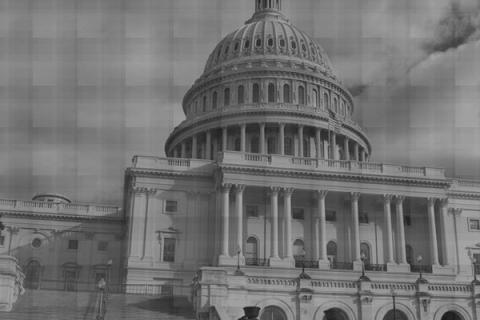As the Coffee Party continues to garner national attention, it is beginning to present a more detailed framework for effecting cultural, political, and social change in America. Viewed as a left-leaning counter to the Tea Party, the Coffee Party is coming off a successful weekend "Summit", in which hundreds of local groups gathered at coffee shops around the nation to discuss the next steps toward pursuing meaningful reform.
In a C-SPAN broadcast of one of the Coffee Party's leading organizers, Annabel Park outlined the movement's general tenets and identified some key differences between it and the Tea Party.
Park stated that the Coffee Party views the Federal Government in a much more positive light compared to the Tea Party. In addition, she said that the grassroots movement is not interested in creating any type of third party; instead, it aims to work within the current system. Park also iterated that the Coffee Party is more of a "democracy movement" intent on pursuing functional government through a civil, rational, and collectivist majority.
With the introduction of a more codified political model, readers can now begin to critically analyze the movement's platform and put it to the test.
For example, while the Coffee Party movement seeks to "work from within", some Americans are becoming increasingly disenchanted with both political parties. Just like in 1992, when Ross Perot ran a viable third party campaign directed mainly at curbing rising government debt, a similar, albeit more passionate, thirst for change seems to be manifesting itself in these present times. Even one leading trends forecaster and a highly regarded Democratic Senator have predicted the possibility of a third party contender by 2012.
Therefore, is the Coffee Party behind the curve on public sentiment? Are Americans actually ready to start looking outside the two-party system for real change?
The Coffee Party also advocates a much greater role for the Federal Government, while criticizing the Tea Party for "declaring war" on it. However, in our nation's earliest days, men like Thomas Jefferson and Alexander Hamilton battled over the proper roles of the federal and state governments. Hamilton, Washington, and the other "nationalists" advocated a powerful federal government, while Jefferson and his "Republican" followers advocated much greater authority for state and local governments. Men such as Hamilton viewed the federal government as the primary tool for effective governance, while men such as Jefferson constantly warned against the onslaught of excessive, open-ended federal power.
In 2010, is America shifting toward a more Jeffersonian view? If so, how would the Coffee Party adapt to this emerging trend? Would it challenge or integrate such a perspective?
The Coffee Party movement also appears to favor a more "democratic" vision for American politics, as opposed to a more "constitutional" vision which some Tea Party supporters espouse. Coffee Party leaders often speak of "democracy" and "majority", while Tea Party adherents, at least in their rhetoric, speak more of a constitutional republic.
What is the Coffee Party movement's view on the Constitution? Should it be changed in any way to reflect the 21st century? Or, should simple majority rule be utilized as the more practical means of enacting public policy?
Finally, though no poll has confirmed such speculation, one could reasonably surmise that a majority of Coffee Party supporters voted for Barack Obama. Yet, only 14 months into his presidency, which was touted as a catalyst for 'change', America is more polarized than ever, and the Coffee Party feels government is completely broken.
Is this then a tacit admission that President Obama has proven largely unsuccessful in living up to his campaign promises of change? Is this Obama's fault, Congress's fault, the media's fault, or the American people's fault? And how will the Coffee Party succeed when most everyone else seems to have failed?
These are just some of the issues Americans can begin investigating to better assess the Coffee Party model. Like the Tea Party, the Coffee Party is a nascent, but popular national movement that possesses tremendous potential to change the entire political landscape.
* Editor's note: To read the previous two Coffee Party articles, click here and here.
